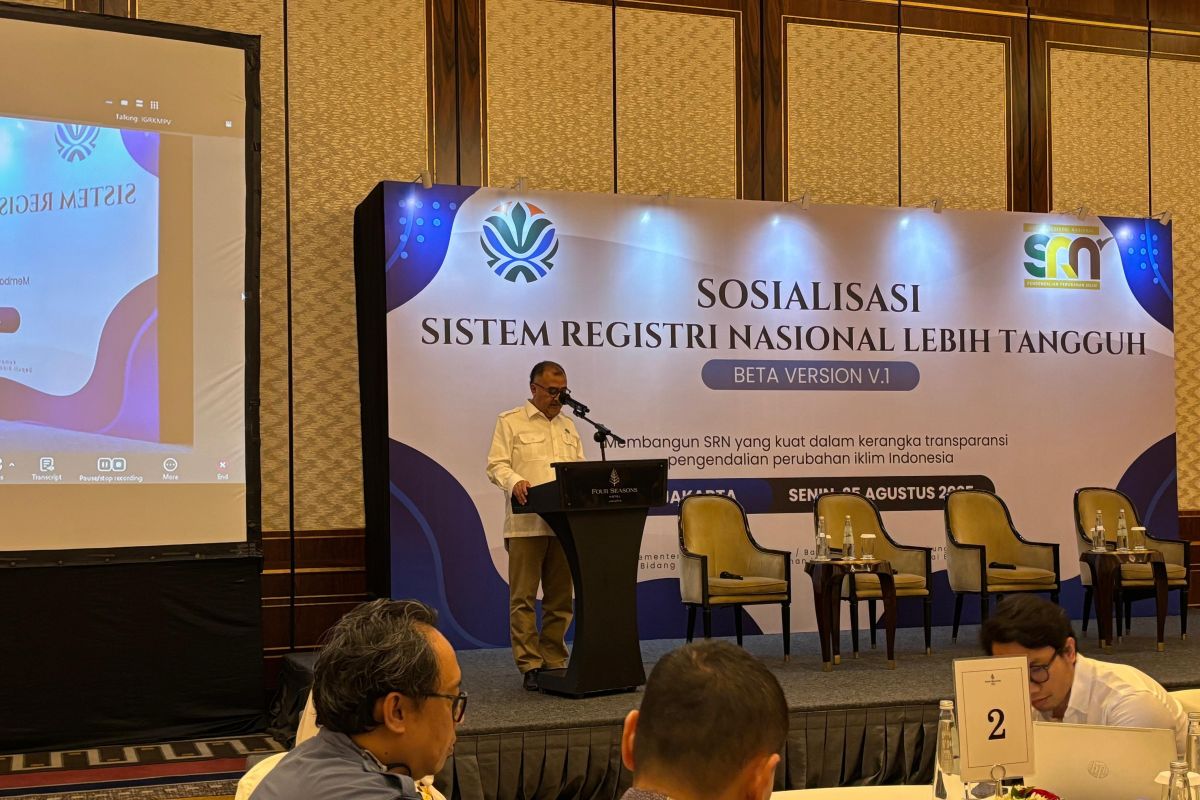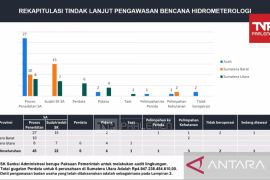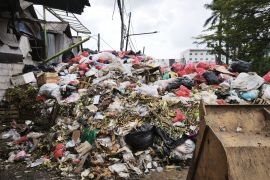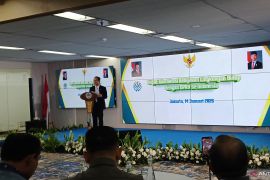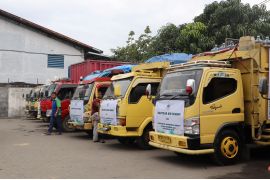"The new system aims to be more modern, adaptive, and user-friendly," Deputy Minister for Climate Change Control and Carbon Economic Governance Ary Sudijanto said during a briefing on the beta version of the system in Jakarta on Monday.
The new system will target data accuracy, consistency, and traceability as part of transparency, he added.
The Ministry of Environment is also targeting integration with other information systems related to climate change management to ensure the SRN PPI becomes a more robust national climate data center.
New features will be developed to facilitate the verification process, provide clearer data visualization, and support evidence-based analysis in decision-making, he said.
He further stated that the new system will strengthen the tracking mechanism for progress in implementing aspects outlined in the Nationally Determined Contribution (NDC) climate document, including the achievement of sectoral targets, adaptation achievements, and international support received by Indonesia.
Related news: Nickel Industries discloses emissions goal: net zero by 2050
The system development was also aimed at supporting the implementation of the Economic Value of Carbon, including carbon trading, which has been initiated in recent years.
"So, the data in the SRN will not be just empty data, but we can use it, for example, to determine our energy achievements. Then, we will also know which areas we need to improve," he said.
This system continued to be refined based on the feedback and needs of relevant ministries, agencies, local governments, businesses, and the public.
In its Enhanced National Development Planning (NDC) document, Indonesia targets a 31.89 percent reduction in greenhouse gas (GHG) emissions through independent efforts and up to 43.2 percent with international support.
Indonesia aims to achieve carbon neutrality, or a condition where its absorption capacity equals its emissions, by 2060.
Related news: Green economy must be main goal of economic transformation: Bappenas
Translator: Prisca Triferna Violleta, Martha Herlinawati Siman
Editor: Rahmad Nasution
Copyright © ANTARA 2025
